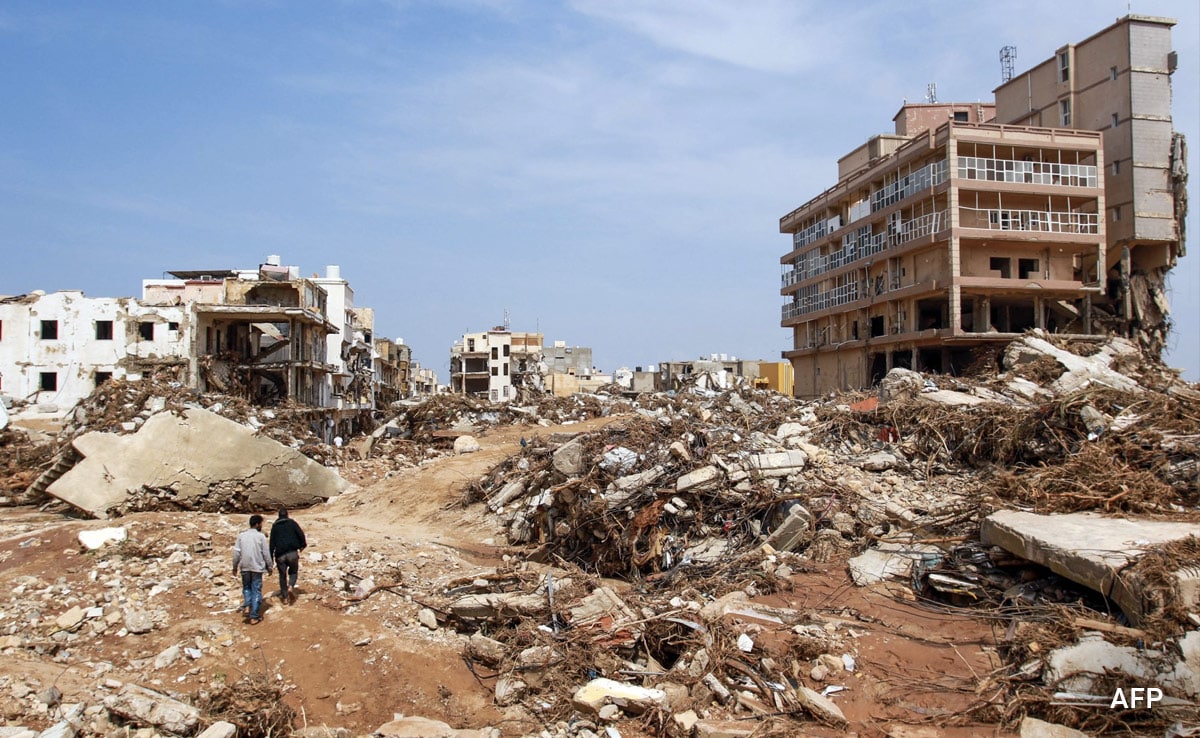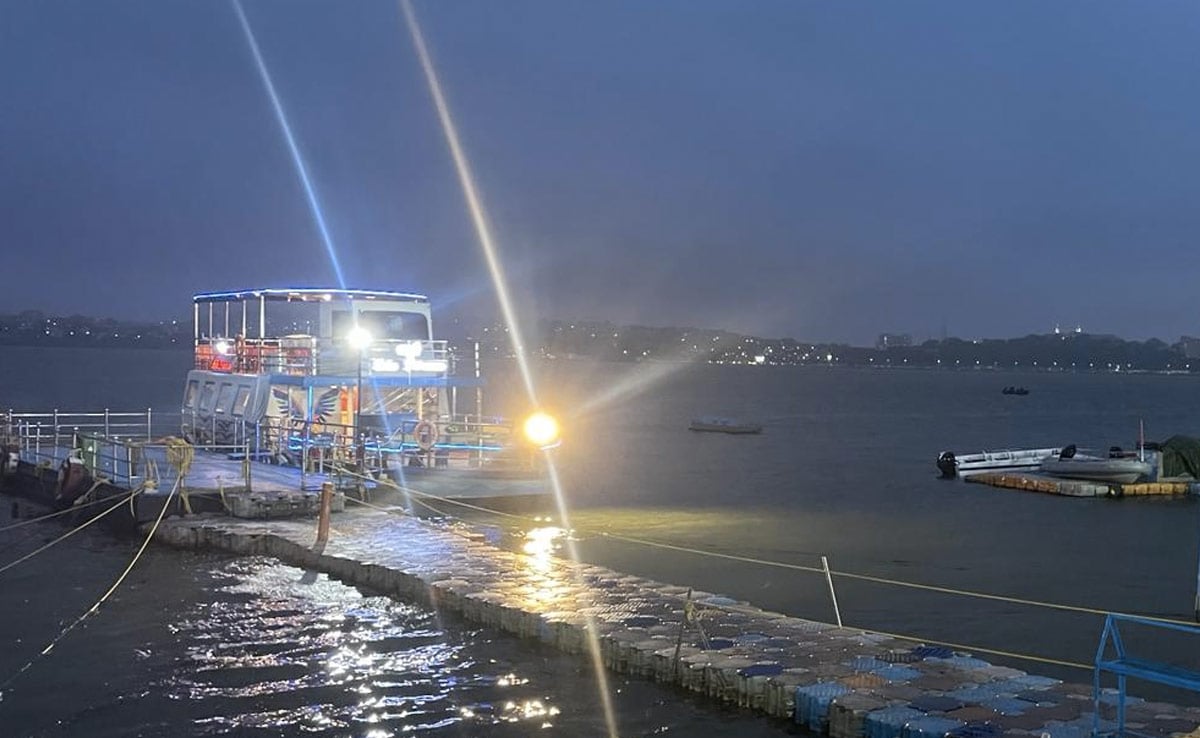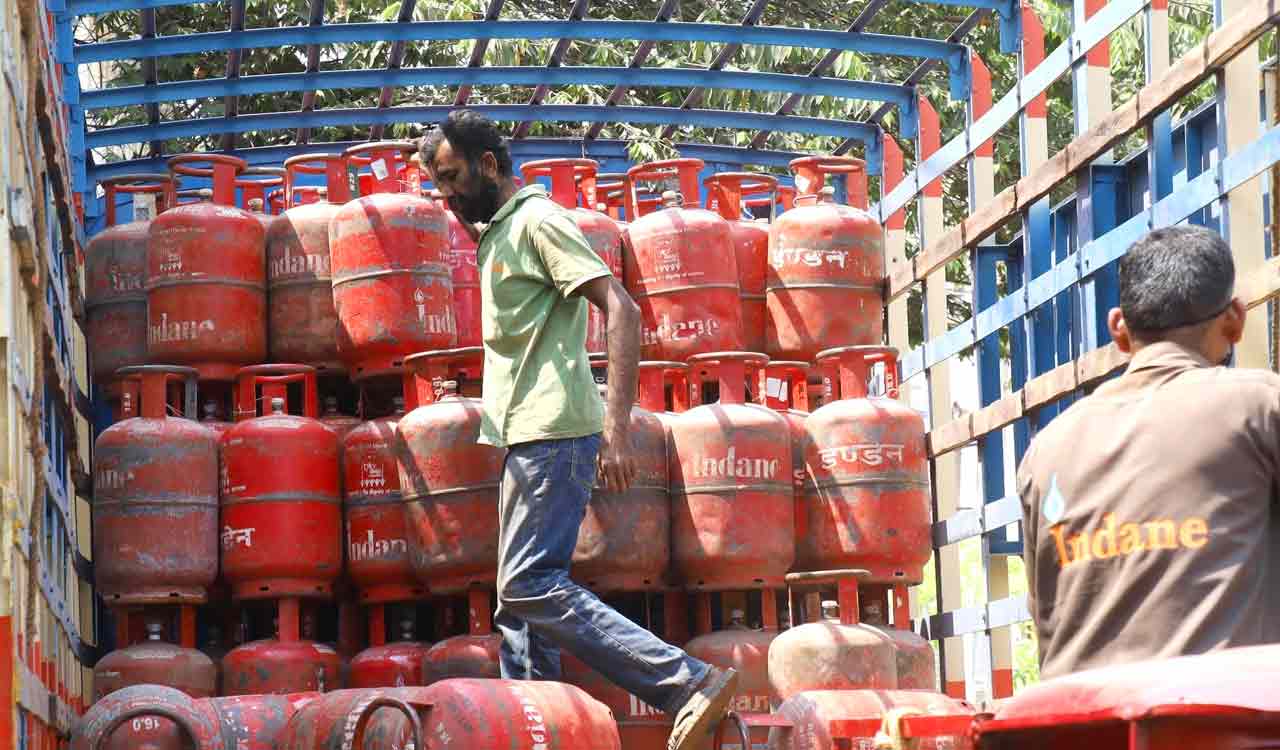Bodies were washing ashore in eastern Libya on Wednesday.
Libya:
Bodies were washing ashore in eastern Libya on Wednesday, swelling the death count from a storm that swept whole neighbourhoods out to sea, with thousands already confirmed dead and many thousands more still missing.
Swathes of the Mediterranean city of Derna were obliterated by the flood torrent, unleashed after rains from a powerful storm burst dams above the city on Sunday night. Whole multi-storey buildings were swept away with sleeping families inside.
The “sea is constantly dumping dozens of bodies”, Hichem Abu Chkiouat, minister of civil aviation in the administration that runs eastern Libya, told Reuters by phone.
“We have counted more than 5,300 dead so far, and the number is likely to increase significantly and may even double because the number of missing people is also thousands,” he added.
Tens of thousands of people had been made homeless, he said, appealing for international aid and adding that Libya did not have the experience to deal with the aftermath of such a disaster.
Officials say at least 10,000 people are feared missing or dead, though tolls of dead confirmed so far vary. Tariq Kharaz, a spokesperson for the eastern authorities, said 3,200 bodies had been recovered, and 1,100 of them had yet to be identified.
At a hospital in Derna on Tuesday, scores of bodies wrapped in blankets were laid out on the floor in corridors or outside on the pavement, for residents to try to identify them.
Mustafa Salem said no one had been found alive from his entire extended family which lived in homes close together near the river valley, opposite a mosque.
“People were asleep and no one was ready,” he told Reuters. “We lost 30 people so far, 30 members of the same family. We haven’t found anyone.”
The UN migration agency, the International Organization for Migration, said at least 30,000 people had been displaced in Derna.
“The most important thing for the search teams is that we need bags for the bodies,” Lutfi al-Misrati, the director of the search team, told Al Jazeera in a phone interview.
The devastation was clear from high points above Derna, where the densely populated city centre, built along a seasonal riverbed, was now a wide, flat crescent of earth with stretches of muddy water gleaming in the sun, all its building swept away.
While Reuters was on the road trying to return to the city on Wednesday, aid convoys and trucks carrying bulldozers could be seen heading in.
Satellite photographs of the city from before and after the disaster showed that what had been a narrow waterway through the city centre was now a wide scar, with all the buildings that had run along it gone. Buildings had also been swept away in other parts of the city.
Rescue operations are complicated by deep political fractures in the country of 7 million people that has lacked a strong central government and been at war on-and-off since a NATO-backed uprising that toppled Muammar Gaddafi in 2011.
An internationally recognised Government of National Unity (GNU) is based in Tripoli, in the west, while a parallel administration operates in the east, including Derna.
Libya’s Tripoli-based Prime Minister Abdulhamid al-Dbeibah called the floods an unprecedented catastrophe. Libya’s Presidential Council head Mohammed al-Menfi has called for national unity.
The bodies of dozens of Egyptian migrants who were among the victims of the storm in Libya arrived on Wednesday in Beni Suef, about 110km (68 miles) south of Cairo, Egyptian media reported.
Governments including Egypt, Qatar and Turkey have rushed aid to Libya. The Italian defence ministry said it was sending two military planes, carrying firefighters and other emergency rescue personnel, and a navy ship.
The United Arab Emirates has sent two aid planes carrying 150 tonnes of urgent food, relief and medical supplies to eastern Libya, the UAE’s state news agency WAM reported.
(Except for the headline, this story has not been edited by NDTV staff and is published from a syndicated feed.)






















